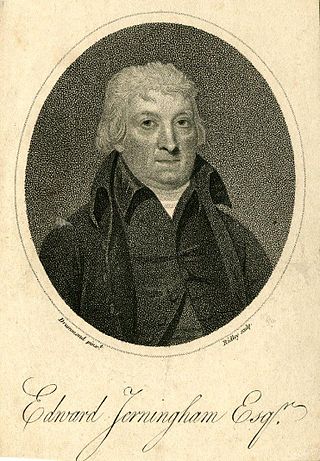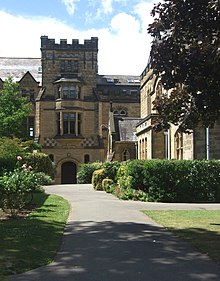
Quintus Horatius Flaccus, commonly known in the English-speaking world as Horace, was the leading Roman lyric poet during the time of Augustus. The rhetorician Quintilian regarded his Odes as the only Latin lyrics worth reading: "He can be lofty sometimes, yet he is also full of charm and grace, versatile in his figures, and felicitously daring in his choice of words."

Alexander Pope was an English poet, translator, and satirist of the Enlightenment era who is considered one of the most prominent English poets of the early 18th century. An exponent of Augustan literature, Pope is best known for his satirical and discursive poetry including The Rape of the Lock, The Dunciad, and An Essay on Criticism, and for his translations of Homer.
This article contains information about the literary events and publications of 1713.
This article contains information about the literary events and publications of 1733.
This article contains information about the literary events and publications of 1756.

James Montgomery was a Scottish-born hymn writer, poet and editor, who eventually settled in Sheffield. He was raised in the Moravian Church and theologically trained there, so that his writings often reflect concern for humanitarian causes, such as the abolition of slavery and the exploitation of child chimney sweeps.

Eloisa to Abelard is a verse epistle by Alexander Pope that was published in 1717 and based on a well-known medieval story. Itself an imitation of a Latin poetic genre, its immediate fame resulted in a large number of English imitations throughout the rest of the century and other poems more loosely based on its themes thereafter. Translations of varying levels of faithfulness appeared across Europe, starting in the 1750s and reaching a peak towards the end of the 18th century and the start of the 19th. These were in the vanguard of the shift away from Classicism and towards the primacy given emotion over reason that heralded Romanticism. Artistic depictions of the poem's themes were often reproduced as prints illustrating the poem; there were also paintings in France of the women readers of the amorous correspondence between the lovers.
Leonard Welsted was an English poet and "dunce" in Alexander Pope's writings. Welsted was an accomplished writer who composed in a relaxed, light hearted vein. He was associated with Whig party political figures in his later years, but he was tory earlier, and, in the age of patronage, this seems to have been more out of financial need than anything else.
Nationality words link to articles with information on the nation's poetry or literature.
Nationality words link to articles with information on the nation's poetry or literature.
Nationality words link to articles with information on the nation's poetry or literature.

Nationality words link to articles with information on the nation's poetry or literature.
Nationality words link to articles with information on the nation's poetry or literature.

John Hughes was an English poet, essayist and translator. Various of his works remained in print for a century after his death, but if he is remembered at all today it is for the use others made of his work. Texts of his were set by the foremost composers of the day and his translation of the Letters of Abelard and Heloise was a major source for Alexander Pope's Eloisa to Abelard.

Judith Madan was an English poet. She was the granddaughter of the diarist Sarah Cowper and aunt of the poet William Cowper. She was a correspondent, admirer and protégé of Alexander Pope prior to her marriage, and she composed an admired early-gothic work, Abelard to Eloisa, as a response to Pope's Eloisa to Abelard.

Charles-Pierre Colardeau was a French poet. His most notable works are an imitation of Eloisa to Abelard by Alexander Pope and a translation of the first two sections of Night-Thoughts by Edward Young. They witness to the pre-Romantic sensibility of the 18th century, as also seen in the works of Rousseau, Diderot and Prévost. He also naturalized Ovid's term. Heroides, as 'héroïdes', imaginary poetic letters by famous people. The relatively small size of his œuvre is attributed by some to his fragile health and by others to proverbial laziness.
John Matthews (1755–1826) was a versatile English physician and poet, also involved in local affairs and politics in Herefordshire.

Peter Abelard was a medieval French scholastic philosopher, leading logician, theologian, poet, composer and musician.

Edward Jerningham was a poet who moved in high society during the second half of the 18th century. Born at the family home of Costessey Park in 1737, he died in London on 17 November 1812. A writer of liberal views, he was savagely satirised later in life.
Thomas Warwick was a poet and unbeneficed clergyman of Cornish origin, born about 1755, died after 1785. He took part in the revival of the sonnet form at the end of the 18th century and his other writing included odes and poems on mediaeval subjects. His behaviour was described as eccentric and he died early in a carriage accident.










